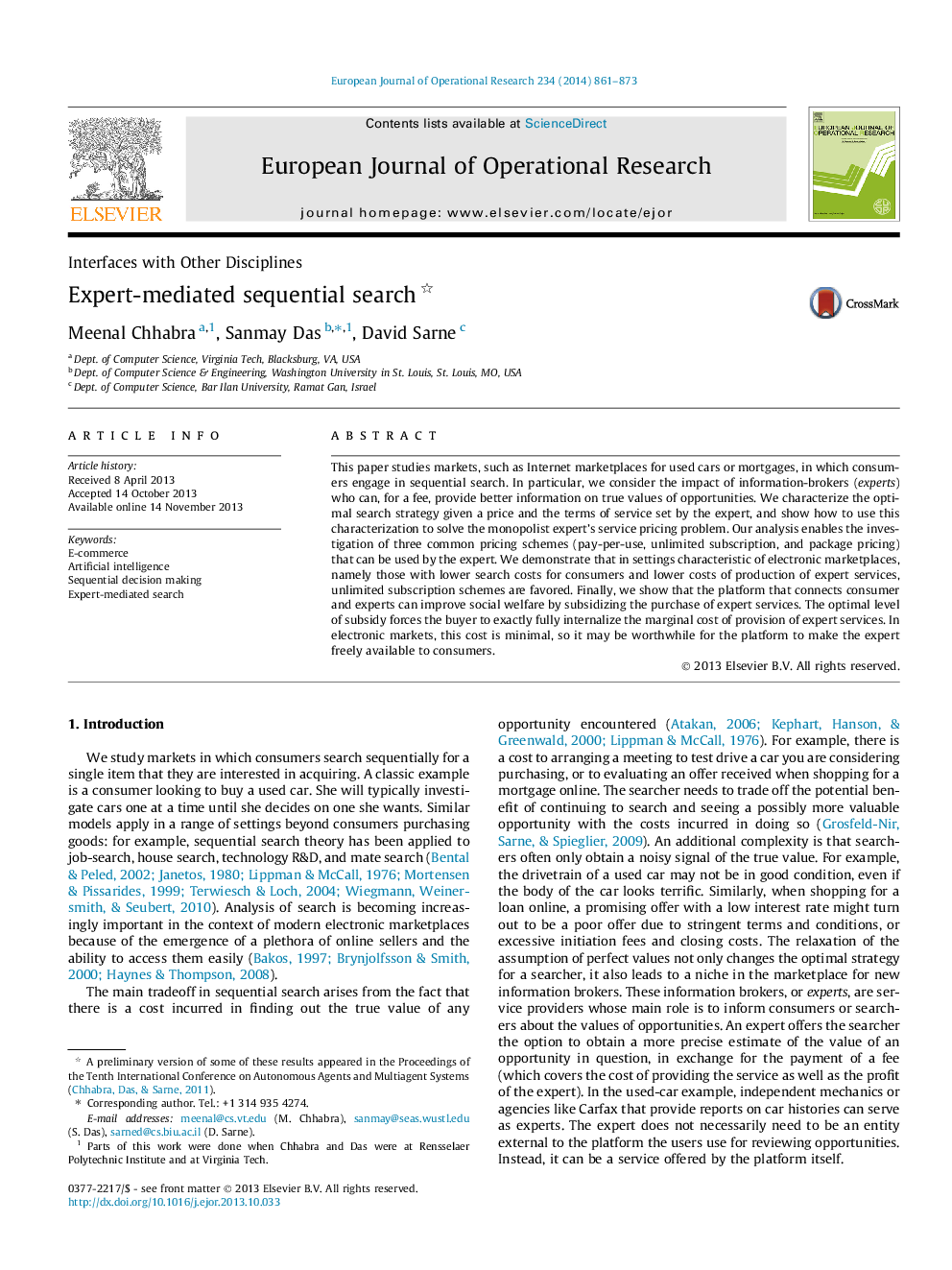| Article ID | Journal | Published Year | Pages | File Type |
|---|---|---|---|---|
| 478219 | European Journal of Operational Research | 2014 | 13 Pages |
•We study strategic information-brokers (experts) in sequential search environments.•We characterize optimal consumer search strategies.•We compare different pricing strategies for the expert.•Subscription models are preferred in settings characteristic of electronic markets.•Subsidizing access to expert services can increase social welfare.
This paper studies markets, such as Internet marketplaces for used cars or mortgages, in which consumers engage in sequential search. In particular, we consider the impact of information-brokers (experts) who can, for a fee, provide better information on true values of opportunities. We characterize the optimal search strategy given a price and the terms of service set by the expert, and show how to use this characterization to solve the monopolist expert’s service pricing problem. Our analysis enables the investigation of three common pricing schemes (pay-per-use, unlimited subscription, and package pricing) that can be used by the expert. We demonstrate that in settings characteristic of electronic marketplaces, namely those with lower search costs for consumers and lower costs of production of expert services, unlimited subscription schemes are favored. Finally, we show that the platform that connects consumer and experts can improve social welfare by subsidizing the purchase of expert services. The optimal level of subsidy forces the buyer to exactly fully internalize the marginal cost of provision of expert services. In electronic markets, this cost is minimal, so it may be worthwhile for the platform to make the expert freely available to consumers.
